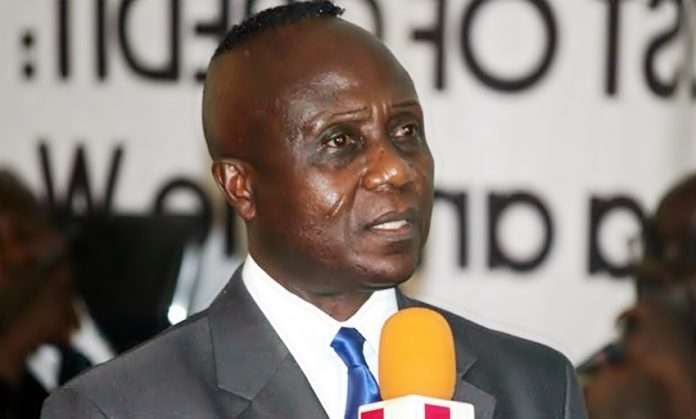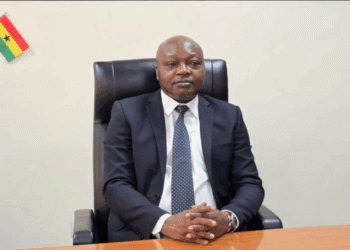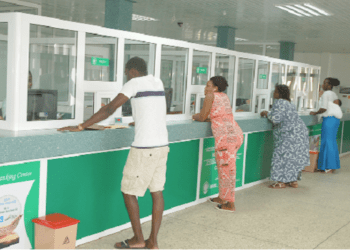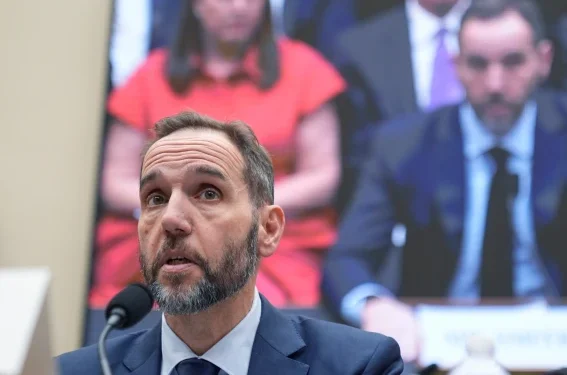Ghana’s banking sector may be heading for another round of recapitalization in 2025 as financial institutions struggle to recover from the impact of the Domestic Debt Exchange Programme (DDEP).
Economist and Director of Research at the Institute of Economic Affairs (IEA), Dr. John Kwakye, has warned that the financial health of banks remains fragile, with rising non-performing loans (NPLs) and weakened balance sheets posing a significant threat to stability.
Dr. Kwakye emphasized that the economic stress caused by the DDEP is still affecting the banking sector. “The banking sector is also coming under stress again because they suffered from the DDEP. And non-performing loans are rising,” he stated. He further predicted that another round of recapitalization may be necessary to reinforce banks’ financial standing.
The DDEP, implemented by the government to restructure Ghana’s debt, involved swapping existing bonds for new ones with longer maturities and lower yields. While this move was aimed at restoring fiscal sustainability, it significantly affected banks, which held a substantial portion of government bonds as assets. The loss in value of these assets weakened banks’ capital positions, making it difficult for them to meet regulatory requirements and support economic growth.
BoG’s Response
To address the crisis, the Bank of Ghana (BoG) has already approved recapitalization plans for undercapitalized banks. Under the plan, affected banks must inject at least one-third of the necessary capital annually over a three-year period, which ends in 2025. This phased approach is intended to provide financial institutions with the time and flexibility needed to strengthen their capital base.
In addition to recapitalization measures, the BoG has introduced stricter penalties for banks that fail to meet minimum capital requirements. This move signals the central bank’s commitment to ensuring financial stability and preventing further distress in the sector. However, concerns remain about whether the recapitalization strategy will be sufficient, especially as economic uncertainties persist.
One of the major challenges facing banks in the wake of the DDEP is the surge in non-performing loans. Many businesses and individuals who rely on bank financing have struggled to meet their loan obligations due to economic difficulties. As a result, the proportion of loans that remain unpaid for extended periods has increased, further weakening banks’ balance sheets.
Dr. Kwakye highlighted this issue, warning that without adequate intervention, the rising NPLs could erode confidence in the banking sector. “It looks like there may be a need for another round of recapitalization of banks,” he remarked.
Economic Challenges Beyond the Banking Sector
Beyond the direct impact on banks, Ghana’s broader economic challenges are also contributing to financial instability. Inflation remains persistently high, hovering in the 20s, and the Ghanaian cedi continues to depreciate against major foreign currencies. These factors further strain businesses and consumers, reducing the demand for credit and increasing default risks for banks.
Dr. Kwakye has called for new economic strategies to tackle these challenges. “Look, inflation is still stuck up there in the 20s. It’s not coming down. We need to find a new approach, beyond the narrow inflation-targeting framework to address the problem,” he said. He also pointed out that the rapid depreciation of the cedi requires urgent policy intervention to stabilize the economy.

As 2025 progresses, questions remain about whether the ongoing recapitalization efforts will be enough to restore full confidence in the banking sector. While the BoG’s phased approach provides a structured path to recovery, the success of the strategy will depend on broader economic conditions.
If inflation and currency depreciation continue to exert pressure on businesses and households, banks may struggle to meet capital requirements, increasing the likelihood of another full-scale recapitalization exercise.
The government and financial regulators must also work together to implement policies that support economic growth and financial stability. Addressing inflation, stabilizing the cedi, and creating a favorable business environment will be key to ensuring that banks can operate efficiently without recurring financial distress.
READ ALSO: Kwesi Aning Demands Transparency over Counterfeit Currency, Gold Bust























